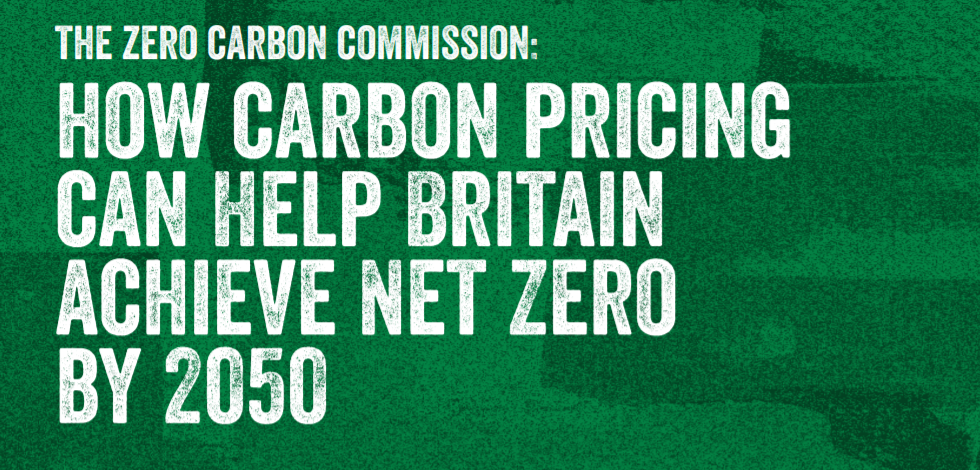Our Commission recently published a white paper outlining their proposals for a more ambitious, accessible and impactful system of UK carbon pricing. As well as addressing the inconsistencies that currently plague the UK’s carbon pricing landscape, the paper sought to find a politically and publicly acceptable route towards aligning UK emissions pricing with our 2050 net zero target.
The UK is prone to over-stating its relevance on the global stage, but in this instance the leadership that we demonstrate on carbon pricing can truly dictate the global direction of travel. Not only do we have a track-record of carbon-pricing leadership - implementing the voluntary pilot initiative that evolved into the EU ETS - but we are also hosting the most important COP since the Paris Agreement, which will inevitably have to focus on as-yet unresolved issues relating to global alignment on emissions pricing.
If I were to summarise our Commission’s 50 page report (and eight months’ worth of work) in as many words, I would say: Protect the poorest. Simplify (as much as possible). Upstream is best. Align prices to environmental targets. Address concerns at the border. Use supportive policies to incentivise change. Support negative emissions. Ensure access to alternatives, especially for households. De-risking mechanisms can support investment. Use revenue to further environmental and social impacts.
Many of these proposals will be relevant to any jurisdiction seeking a fair and effective way of pricing pollution out of their economy, but they have come at an especially critical juncture in the UK’s carbon pricing journey. With just four weeks to go until the UK officially leaves the European Union, our Government is yet to announce what shape the UK’s post-Brexit carbon pricing landscape will take.
Whilst it looks likely we will create a UK ETS, it remains to be seen whether this will be ‘standalone’, or linked to the EU System (an increasingly unlikely prospect if reports on the state of Brexit negotiations are to be believed). What’s more, a proposal from the Treasury to implement a Carbon Emissions Tax for all operations currently involved in the EU ETS has not yet been taken off the table.
The uncertainty caused by this indecision is, understandably, causing a huge amount of frustration for those who will be affected by the renewed pricing regime. But amongst the confusion, the fact remains that none of the proposals that have been put forward by Government align to the UK’s net zero target, or renewed Nationally Determined Contribution under the Paris Agreement. They don’t reflect the scale of ambition coming out of the EU, or the President-elect of the United States, and we still only price one third of our territorial emissions.
In order to ensure that the decision on post-Brexit carbon pricing marks the beginning rather than the end of the UK’s focus on this issue, we are building a coalition in support of a Declaration calling for the UK Government to demonstrate ambitious leadership on carbon pricing in the run up towards COP26, including that relating to multilateral Border Carbon Adjustments. These calls are currently supported by over 50 high-profile organisations and individuals representing a wide range of industries and political persuasions - including CPLC members such as Drax, IETA, Environmental Defence Fund, CDP, the Prince of Wales’ Corporate Leaders’ Group and Shell - and we would be thrilled to welcome additional signatories to the fold. If this - or anything else you read in our Commission’s report - is of interest to you, please do not hesitate to get in touch.
The Zero Carbon Campaign is a CPLC partner.
Hannah Dillon, Head of the Zero Carbon Campaign.












